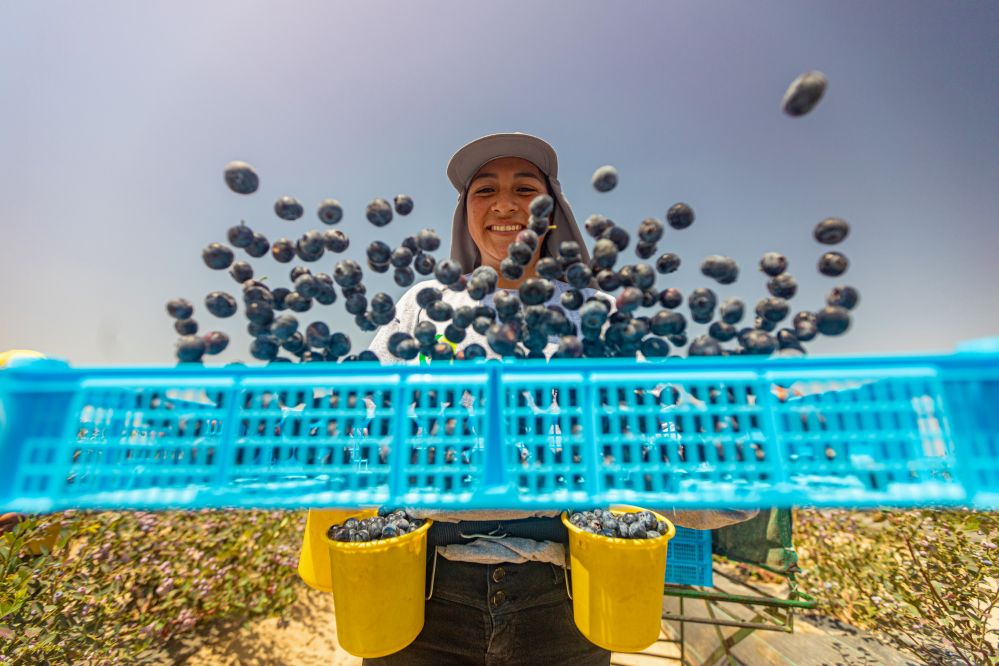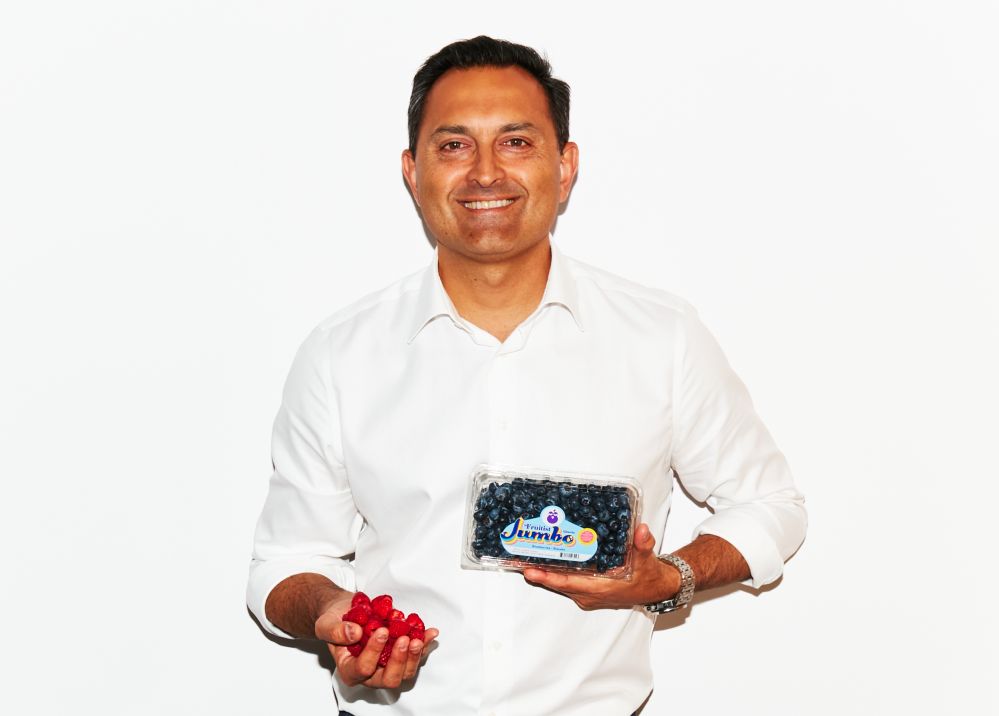Berry supplier Agrovision has raised a $100 million equity financing round led by Aliment Capital and supported by new and existing investors including Oaktree Capital Management cofounder Steve Kaplan, giving it a valuation topping $1 billion.
The round follows a period of “meteoric growth” at the vertically integrated superfruit company, which nearly tripled sales in the past three years, and will fuel global distribution and accelerate product innovation.
“Delivering more flavorful superfruit year-round requires full stack innovation, optimizing across every layer of technology from genetics and systems to AI,” said Agrovision cofounder and CEO Steve Magami, who founded the business in 2012 with an initial focus on growing, distributing and marketing blueberries from Peru.
The Los Angeles-based company has since expanded its growing areas to Mexico, Chile, India, Morocco, the USA and China, and supplies blueberries, raspberries, blackberries, and cherries to leading supermarkets, club stores, and high-end independent retailers across the US, Asia, the Middle East, and Europe.
Berries for GLP-1 users?
Berries, which have been growing in popularity in recent years, are also getting a boost from users of GLP-1 drugs such as Ozempic and Wegovy, said the firm: “The impact of GLP-1 has led to a notable shift in consumer behavior, with a 20% increase in fresh produce purchases by prescription users.”
“We’ve observed a shift in how people are investing in their health and spending at the store,” added Aliment Capital cofounder and managing partner Ben Belldegrun. “Agrovision is truly the ‘right place, right time’ with its unique model of owning the full stack, enabling it to guarantee its customers high-quality superfruit throughout the year regardless of their geographic location.”

Tech-enabled approach
In recent years, Agrovision has invested more than $400 million in global expansion, new genetics, artificial intelligence, and other technologies, recently striking a partnership with Seattle-based startup RipeLocker to deploy its patented low-atmosphere vacuum chambers to extend the life of berries across its supply chain, cofounder and CEO Steve Magami told AgFunderNews.
“We love this technology and the founders. This is a great example of a proven technology where we’ve shown we can double the shelf life of a raspberry. We’re still working through the logistics of it, but we’re pretty optimistic we’re going to have it commercially rolled out by next year.”
AI is also a “big area for us,” he said. “We’re working on what we think will be a first in the industry in terms of optimized prediction of the harvest and hope to have news on this to share in the coming months.”
As for genetics, he said, the focus is on optimizing flavor and improving resilience in a warming climate.
“The industry went too far away from flavor and towards production and yield for a long time, whereas we’ve been leaning in on flavor, but using technology to get to a level of production such that the agricultural side of things also works. But after flavor and the eating experience, the second most important thing to us is climate resiliency, so we’re planting varietals with a higher level of climate resiliency, that are more tolerant to heat.”
He added: “Countries that were important producers of blueberries in the past like Argentina are no longer even on the map today, whether it’s for climate reasons, water, or availability of labor, so we are going to see a movement towards new growing regions that are more optimal.”

‘Enormous growth to come’
In its next growth phase, the company will invest in establishing new growing regions in Egypt and Indonesia and expanding its operations in markets such as China, Magami told AgFunderNews.
He did not confirm media reports from earlier this year referencing revenues of $300 million, but said the figure was “not far off… we’re scaling very fast, so that number is going to look very small in the not too distant future.”
He added: “When we make an investment in production, it usually takes about five years to reach full maturity depending on the location. And we’re going to see volumes increase as those plantings mature over the next few years, so we have visibility into just enormous growth to come.”
Asked about the endgame for investors, he said: “We have investors that are aligned with our vision and our mission to build a generational company that’s going to make the world a healthier place. They’re not looking for a quick exit, which has given us a real advantage in being able to build this business for the very long term.”





